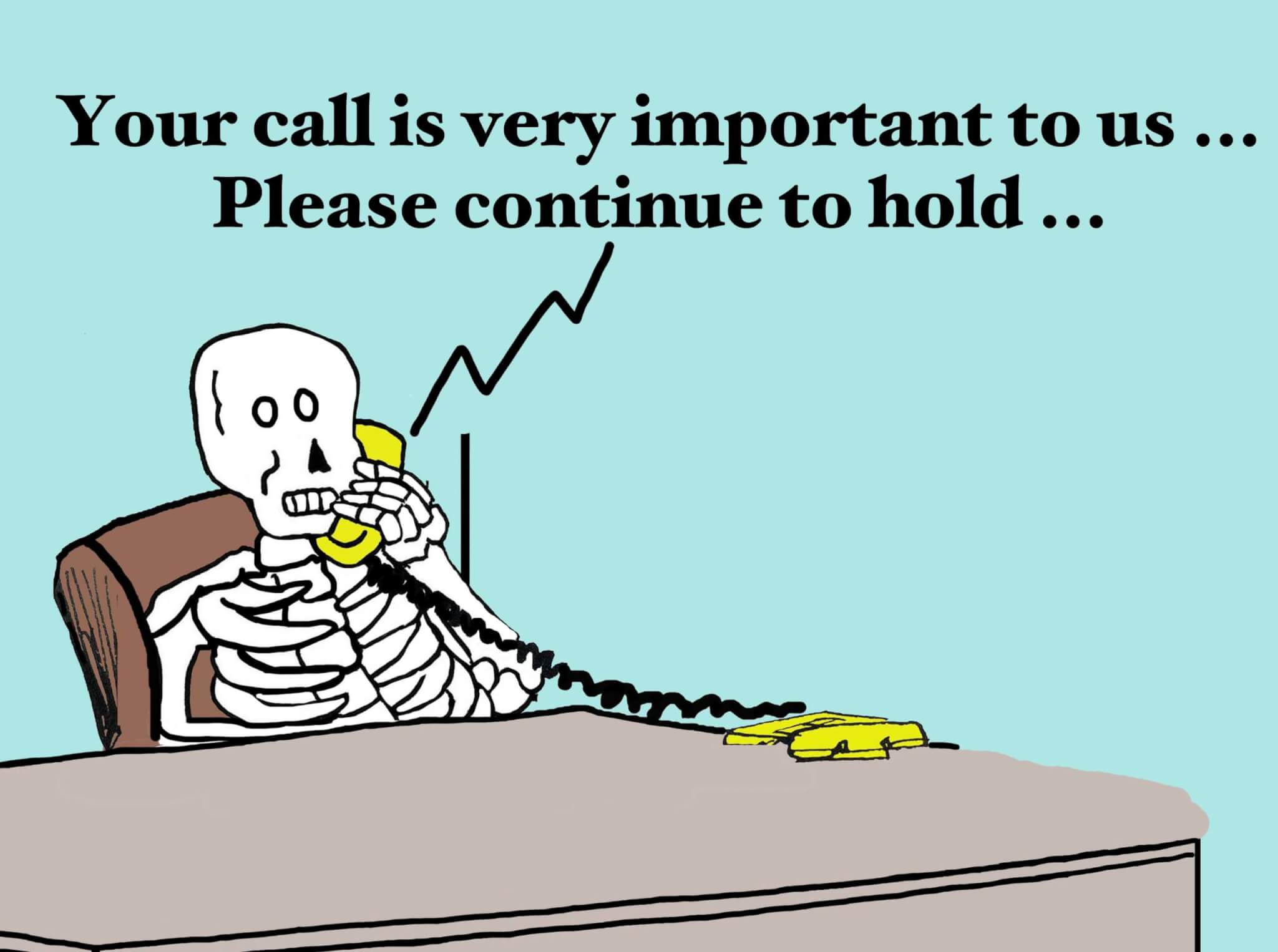🗝️ Key Takeaways:
- We crave closure: The study shows impatience stems not just from wanting rewards quickly, but also from desiring to finish tasks and eliminate lingering goals.
- Waiting woes intensify near the end: As the wait concludes, impatience spikes, regardless of the anticipated outcome, demonstrating the heightened desire for resolution.
- Practical implications: Understanding the need for closure can help businesses manage customer expectations (e.g., announce delays early) and individuals make choices that prioritize personal satisfaction and goal completion.
AUSTIN — Tom Petty was right that “waiting is the hardest part.” Now, new research is revealing why. The University of Texas at Austin scientists are delving into the psychological struggle of waiting, whether in line or for significant life events, shedding light on the internal negotiations that lead to impatience and the desire for closure.
The studies explore how the need for closure impacts decision-making and the emotional journey of waiting. The researchers’ findings offer a novel perspective on impatience, suggesting it’s not just a yearning for immediate rewards but also a desire to conclude ongoing goals.

One of the studies examines the concept of “intertemporal choice,” which involves comparing the benefits of receiving a payoff now versus at a future date. Researchers discovered that the need for closure significantly influences these decisions. Through a series of online and lab experiments, participants consistently chose to pay more or work harder sooner if it meant achieving closure faster. For instance, some were willing to pay an extra dollar to settle a bill immediately, while others preferred to work 15 percent more for the same pay if they could complete their tasks earlier.
“The need for goal closure helps explain the counterintuitive preference for working more sooner or paying more sooner,” says study author Annabelle Roberts, Texas McCombs assistant marketing professor, in a media release. “We find that impatience isn’t just about this myopic desire for the reward. It’s also about crossing goals off their list, not having the goal hanging over them.”
These insights have practical implications for team management and marketing strategies. Understanding that people value closure can help managers motivate their teams more effectively, reducing procrastination. Similarly, marketing promotions like “buy now, pay later” might be less appealing to consumers who prefer to avoid the lingering stress of upcoming payments.
Roberts’ second paper delves into the emotional experience of waiting, particularly as the anticipated end of the wait approaches. The research found that impatience intensifies near the conclusion of a wait, whether it’s for a vaccine during the COVID-19 pandemic or the arrival of public transportation. This increase in frustration was observed in various real-life scenarios, including the anxious anticipation for the 2020 presidential election results, where impatience escalated for supporters of both Joe Biden and Donald Trump as the counting prolonged.
“Even for those who expected their candidate wasn’t going to win, they just wanted to get this over with,” notes Roberts. “This nicely demonstrates the desire for closure and how it plays out in the experience of waiting.”
From these findings, Roberts suggests practical advice for businesses: managing customer expectations by preparing them for longer waits might mitigate impatience. Announcing delays early in the waiting process allows customers to adjust their expectations, potentially improving their overall experience.

Roberts is committed to expanding this line of research with projects aimed at identifying strategies to help people manage their impatience more effectively.
“I want my research to help people manage their waiting experiences,” concludes Roberts. “A lot of people really want help with how they can be more patient while they wait, and how they can make better choices, like saving for the future.”
Roberts’ research at The University of Texas not only provides a deeper understanding of the psychological dynamics of waiting but also offers valuable insights for improving personal patience and informing business practices. As society continues to grapple with the challenges of waiting in various aspects of life, these studies underscore the importance of addressing our need for closure and managing expectations to ease the burden of impatience.
“Can’t Wait to Pay: The Desire for Goal Closure Increases Impatience for Costs” is published in The Journal of Personality and Social Psychology, while “Impatience Over Time” is published in Social Psychological and Personality Science.
Tips for Cultivating Patience:
Based on the research on the need for closure:
1. Reframe waiting as progress: Shift your perspective from being stuck in a wait to actively moving towards a completed goal. Focus on the steps you’ve taken and the progress made, rather than solely on the remaining time. This can provide a sense of accomplishment and reduce the feeling of stagnation.
2. Break down large waits into smaller steps: Divide lengthy waits into manageable chunks with milestones or mini-goals. Completing these smaller steps can provide a sense of closure and accomplishment along the way, making the overall wait feel less daunting.
3. Embrace distraction with purpose: Engage in activities that are enjoyable and productive while you wait. Reading, listening to music, or even doing light exercise can take your mind off the wait and occupy your time productively.
4. Manage expectations proactively: When possible, inform yourself about expected wait times. Knowing the duration beforehand can help you mentally prepare and adjust your expectations, potentially reducing frustration.
5. Embrace mindfulness: Practice being present in the moment and accepting the wait as it is. Meditation or deep breathing exercises can help you manage frustration and cultivate calmness during the waiting period.
General tips for improving patience:
- Challenge negative thoughts: Recognize and challenge self-defeating thoughts like “I can’t handle this” or “It’s taking too long.” Replace them with more positive affirmations, focusing on your ability to cope and the temporary nature of the wait.
- Practice gratitude: Shift your focus away from what you lack and appreciate what you already have. Practicing gratitude can improve overall well-being and build resilience against frustration.
- Develop coping mechanisms: Identify healthy coping mechanisms to manage frustration, such as listening to calming music, taking a walk, or engaging in relaxation techniques.
- Be kind to yourself: Remember that everyone experiences impatience. Treating yourself with compassion can help you navigate challenging situations and build self-acceptance.
Remember, patience is a skill that can be developed with practice and conscious effort. By incorporating these tips into your daily life, you can gradually build your capacity to handle waits with greater peace and ease.

I am impatient because I have things to do that does not involve waiting when there is no valid reason for doing so.
Of course, I am also impatient with incompetence, indecisiveness or ‘fumbling’ (think of the dolt at the checkout counter who suddently realizes he/she has to pay for the groceries and then pulls out their wallet to find the card or cash.